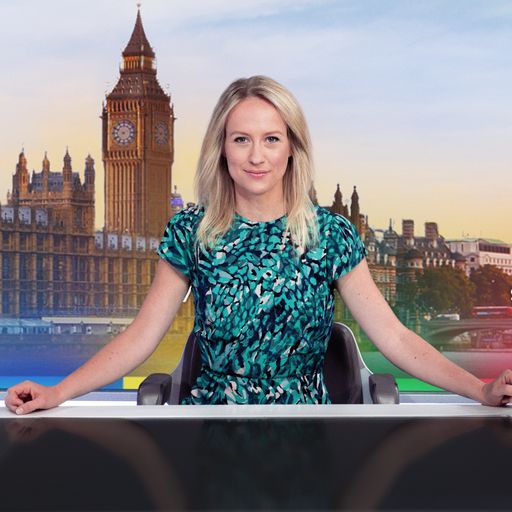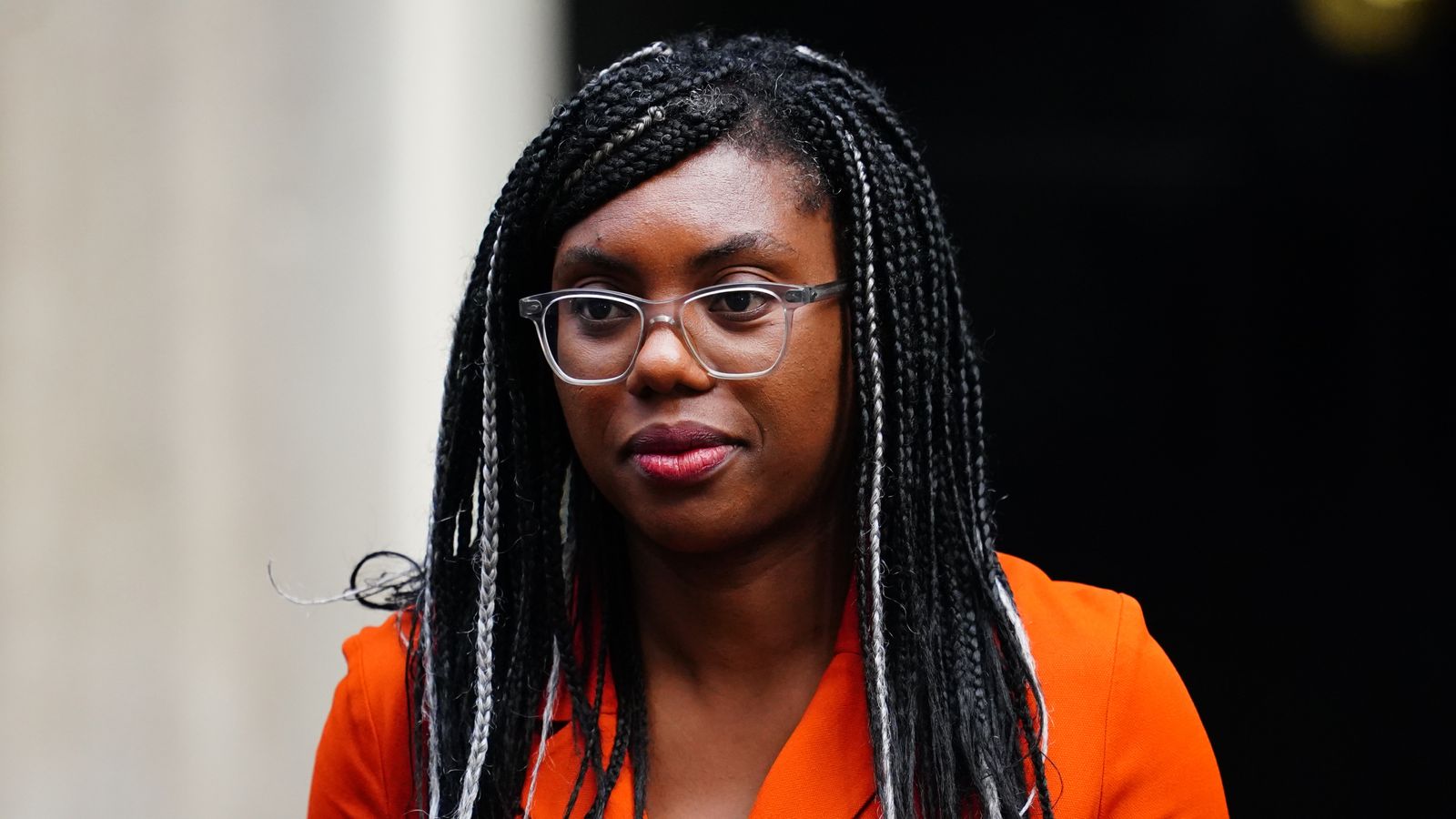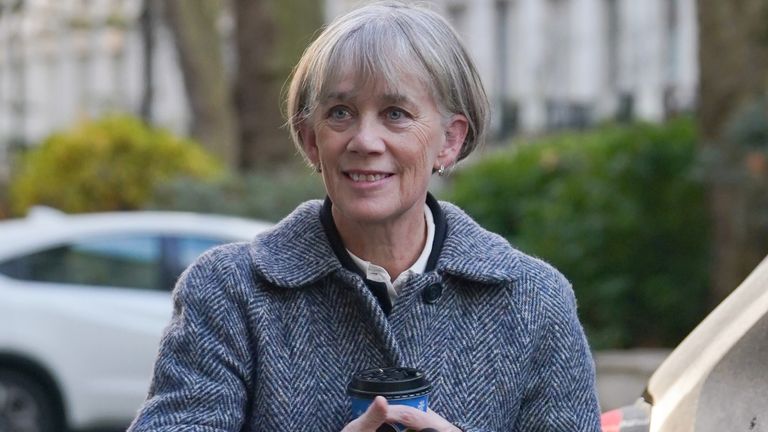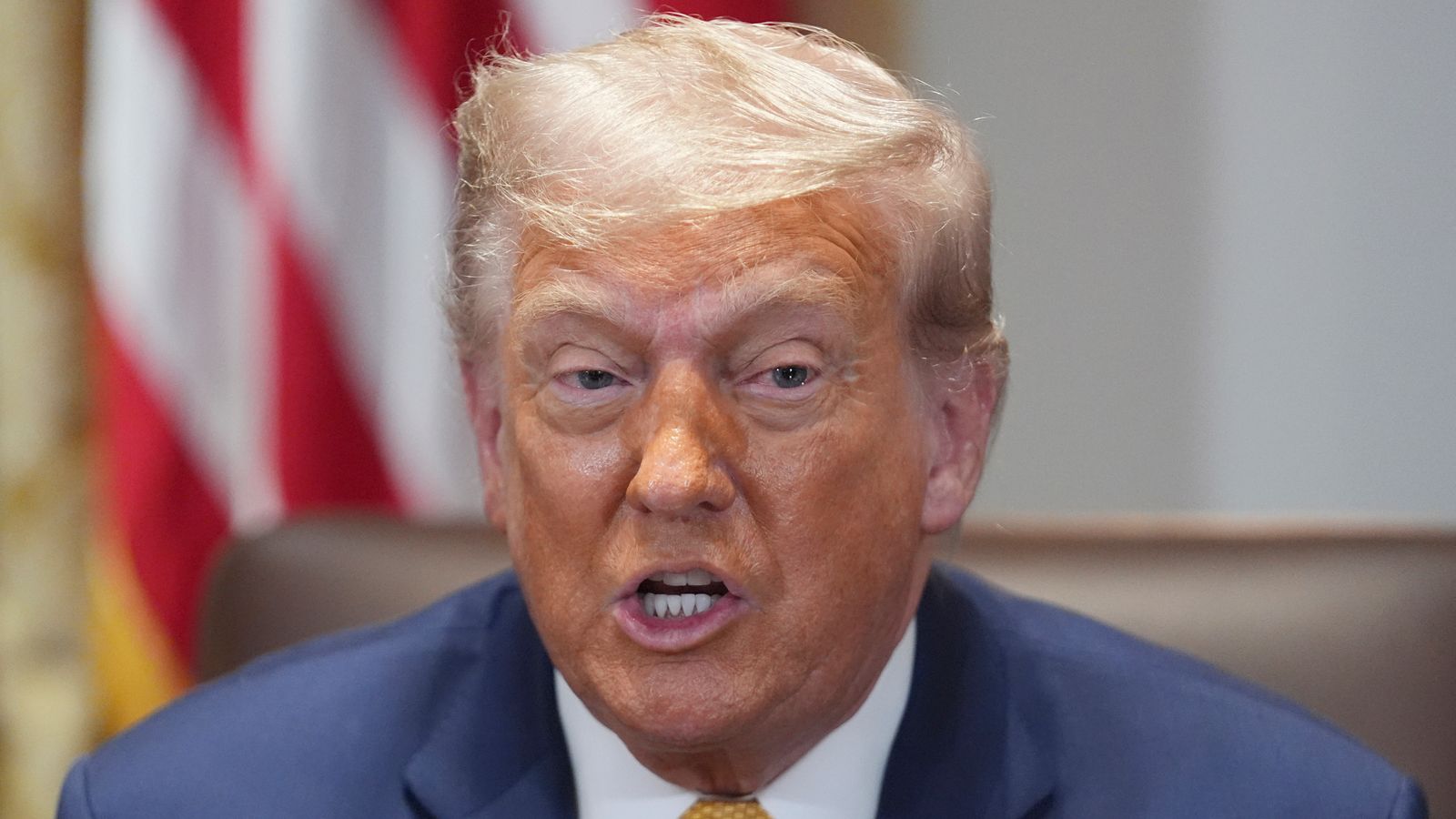
The government has yet to deal with misinformation, according to Trade Secretary Kemi Badenoch, and struggled to stop some people from believing it during the pandemic.
The cabinet minister was giving evidence at the COVID inquiry today, having served as equalities minister during the pandemic, and spoke about the damage done by conspiracy theories.
Politics latest:
Braverman intervenes as Sunak faces calls to act on migration
Ms Badenoch said: “Even as a constituency MP, the number of people who come up to me in the street and tell me that I am part of a grand conspiracy to infect them, and ‘so-and-so died’ because of the material that we were putting out.
“I don’t think government has got a handle on dealing with misinformation. I don’t think that we have adapted to this age of social media, where information travels at lightning speed across the world.
“I don’t know how we solved it, but in terms of gaps, I think there is a lesson in the pandemic that this is an area that needs some addressing.”
She added that, if work is going on in government to tackle disinformation, she has not seen it.
Ms Badenoch was also asked extensively about how the government approached some groups suffering worse outcomes from the virus than others.
During her evidence, she highlighted that, while many affected people saw a report saying there was a disparity of outcomes due to COVID and judged it to be due to “prejudice, discrimination, racism”, the government was finding something different.
She explained how the government concluded it was not that being from a certain ethnicity increased someone’s vulnerability to the virus, but rather that someone being from a certain ethnicity increased the likelihood someone was likely to have another reason to be more vulnerable – for example, their job or their living situation.
The cabinet minister said there were fears in some communities that government vaccine plans, for example, were part of a “secret conspiracy” aimed at “culling the population”.
Part of this was due to people coming from countries where the government could not necessarily be trusted, and this carried over to the UK, she said.
Read more:
Mass gatherings in March 2020 were ‘logically incoherent’
COVID laws were confusing and fines were disproportionate
Families accuse inquiry of ‘doubling down’ on racism decision
Ms Badenoch also explained how she felt the term BAME – which stands for black and minority ethnic – was unhelpful.
She said this was because it treats all groups – for example, black African, Pakistani and Bangladeshi communities – the same, which makes it harder to understand how the individual groups are being impacted.
She also said it comes from a point of starting with white people being the norm.
Ms Badenoch told of how COVID outcomes for black people got better between the first and second waves of the virus, but stayed the same or got worse for Pakistani and Bangladeshi people.
She said this was mainly down to multi-generational households, and there were also issues around compliance with measures like social distancing.
There was also an overlap with people from certain minority backgrounds being employed in jobs – like care, taxi drivers, or security – which were more at risk.
Click to subscribe to the Sky News Daily wherever you get your podcasts
Earlier in the day, Dame Angela McLean gave evidence to Lady Hallett’s inquiry.
Dame Angela, who is currently the chief scientific adviser to the government, was the second most senior adviser during the pandemic.
The professor of mathematical biology described how September 2020 was the “worst” moment of the pandemic, as scientists were telling the government that action needed to be taken to stop growing infections.
But instead, nothing was done, and this itself increased the spread of COVID, with no one gripping the situation.
“We said – you should do something now. But nothing happened,” she told the inquiry.
Dame Angela – who dubbed Rishi Sunak “Dr Death” in the pandemic over the Eat Out to Help Out scheme – said she would have advised against the policy if she were asked about it.
Eat Out to Help Out encouraged people back into bars and restaurants by subsidising meals.













